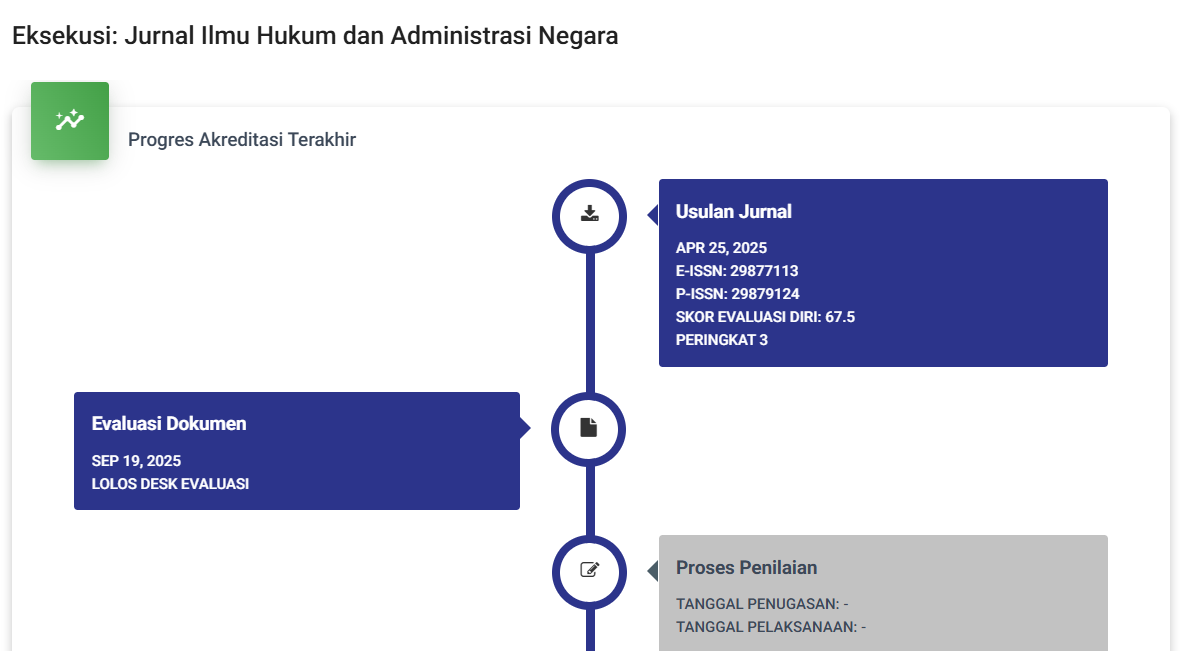Analisis Model Pengambilan Keputusan Dalam Implementasi Kebijakan Ganjil Genap Di Jakarta Guna Mengurangi Kemacetan Dilihat Dari Teori Rasionalitas
DOI:
https://doi.org/10.55606/eksekusi.v2i2.1207Keywords:
Congestion, Motor Vehicles, Public Transport, Odd-Even PolicyAbstract
DKI Jakarta faces significant traffic congestion due to the increasing population and number of motor vehicles. This research uses a qualitative approach through literature review to identify the factors causing congestion and to formulate effective solutions.The findings reveal that congestion is caused by high private vehicle usage, low use of public transportation, and limited road space. The proposed solutions in this study include improving public transportation infrastructure, implementing an odd-even traffic policy, and enforcing a 3 in 1 rule for cars. The analysis results show that implementing the odd-even policy is the most effective solution to reduce congestion. This policy has proven to reduce the volume of vehicles on the road and encourages the public to switch to public transport, significantly reducing exhaust emissions, improving air quality, increases the efficiency of road space usage, and lowers the traffic accident rate. The success of this solution requires active support and participation from the public. Therefore, the government needs to continuously involve the public in the decision-making process and provide adequate education about the impact and urgency of congestion issues. Collaboration between the government and the public is crucial to creating effective solutions to address congestion and enhance sustainable mobility in Jakarta.
References
Agni, S. N., Djomiy, M. I., Fernando, R., & Apriono, C. (2021). Evaluasi penerapan smart mobility di Jakarta. Jurnal Nasional Teknik Elektro Dan Teknologi Informasi, 10(3), 214-220. https://doi.org/10.22146/jnteti.v10i3.1730
Fadhli, M. E., & Widodo, H. (2019). Analisis pengurangan kemacetan berdasarkan sistem ganjil-genap. Planners Insight: Urban and Regional Planning Journal, 2(2), 036-041.
Famuji, T., & Sunarti. (2022). Literature review gaya belajar untuk berpikir kritis dan hasil belajar siswa. Proceedings Series on Social Sciences & Humanities, 3.
Handayani, S., Afrianti, D. A., & Suryandari, M. (2021). Implementasi kebijakan angkutan umum di DKI Jakarta. Jurnal Teknologi Transportasi Dan Logistik, 2(1), 19-28. https://doi.org/10.52920/jttl.v2i1.30
Heliany, I. (2020). Efektivitas kebijakan publik terkait dengan peraturan plat kendaraan ganjil-genap (Studi kasus tol Bekasi-Jakarta). Jurnal Penelitian Hukum, 2(1), 246-270.
Kementerian Perhubungan Republik Indonesia. (2017). Transportasi sebagai pendukung sasaran pembangunan nasional. https://dephub.go.id/post/read/transportasi-sebagai-pendukung-sasaran-pembangunan-nasional
Kementerian Perhubungan Republik Indonesia. (2020). Pembangunan infrastruktur transportasi, bangun perekonomian merajut keberagaman. https://dephub.go.id/post/read/pembangunan-infrastruktur-transportasi,-bangun-perekonomian-merajut-keberagaman
Muhamad, N. (2023, December 15). Seberapa sering masyarakat Indonesia menggunakan transportasi umum? Ini surveinya. Databoks. Diakses pada 20 April 2024. https://databoks.katadata.co.id/datapublish/2023/12/15/seberapa-sering-masyarakat-indonesia-naik-kereta-api-ini-surveinya
Putri, A. A., Tama, Y. P., & Suryandari, M. (2021). Simulasi dampak rencana penerapan skema ganjil genap di Kota Bekasi. Jurnal Teknologi Transportasi Dan Logistik, 2(2).
Redjo, S., & Surya, A. (2023, December). Berani berubah: Menjadi warga urban berkelanjutan dengan transportasi umum. Greenpeace. https://www.greenpeace.org/indonesia/cerita/57743/berani-berubah-menjadi-warga-urban-berkelanjutan-dengan-transportasi-umum/
Setyowati, T. M., Ashari, Y., & Perwitasari, E. P. (2020). Implementasi kebijakan pemerintah atas perluasan ganjil genap terhadap aktivitas logistik di wilayah DKI Jakarta. Jurnal Manajemen Bisnis Transportasi Dan Logistik (JMBTL), 6(3).
Victoria, A. O. (2019, December 15). Bank Dunia: Indonesia rugi Rp 56 triliun per tahun akibat kemacetan. Katadata. Diakses pada 20 April 2024. https://katadata.co.id/finansial/makro/5e9a4e616e420/bank-dunia-indonesia-rugi-rp-56-triliun-per-tahun-akibat-kemacetan








